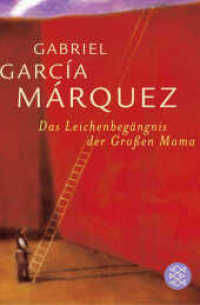Full Description
This edited volume provides the follow up to Erling et al.'s (2021) Multilingual Learning and Language Supportive Pedagogies in Sub-Saharan Africa. The strategies put forward in Volume 1 included multilingual pedagogies that allow students to draw on their full linguistic repertoires, translanguaging and other language-supportive pedagogies. While there is great traction in the pedagogical strategies proposed in Volume 1, limited progress has been made in terms of multilingual education in Sub-Saharan Africa (SSA). Thus, the main focus of this follow-up volume is to explore the question of why former colonial languages and monolingual approaches continue to be used as the dominant languages of education, even when we have multilingual pedagogies and materials that could and do work and despite substantial evidence that learners have difficulties when taught in a language they do not understand.
This book offers perspectives to answer this question through focusing on the internal and external pressures which impact the capacity for implementing multilingual strategies in educational contexts at regional, national and community levels. Chapters provide insights into how to better understand and work within these contemporary constraints and challenge dominant monoglossic discourses which inhibit the implementation of multilingual education in SSA. The volume focuses on three main areas which have proven to be stumbling blocks to the effective implementation of multilingual education to date, namely: assessment, ideology and policy.
An insightful collection that will be of great interest to academics, researchers and practitioners in the fields of language education, language-in-education policy and educational assessments in the wide range of multilingual contexts in Africa.
Contents
1. Introduction Part 1 Assessment 2. Heteroglossic, Multimodal Classroom Discourses and Monolingual, Monomodal Assessment in Namibian Primary Science Teaching: A Case Study 3. Legitimising Fluid Multilingual Practices: A Challenge for Formal Education Worldwide 4. Vignette: Using Flexible Bilingual Academic Content Assessments in the United States: Lessons Learned 5. Assessment Considerations for Multilingual Students in an English-Medium Environment: The PUMI Decision-Making Process and Translanguaging 6. Vignette: The Role of Home Language in Supporting Adolescent Girls' Learning in Rural Zimbabwe Part 2 Attitudes and Community Initiatives 7. Ideologies of English and Language of Instruction in Ghana: Educator Perceptions and Pressures 8. Language of Instruction Attitudes in Rural Tanzania: Parental Discourses and Valued Linguistic Capabilities 9. Vignette: Community Initiatives for the Use of Maa in Education in Kenya 10. Community Perspectives on the Introduction of Mother Tongue-Based Bilingual Education in Obolo, Nigeria 11. Challenges for Gambian Primary Schools Aiming to Enhance Literacy Through the Use of National Languages Part 3 Policy: Factors in Development and Implementation 12. Vignette: "But Exams Are Not Given in Ngoni": The Place of Local Languages in Tanzania's Primary Education 13. Vignette: Language-in-Education Policy and STEM Teaching and Learning in Tanzanian Schools 14. EMI Policy in Practice: Multilingual Mathematics Lessons in a Government Secondary School in Rural Rwanda 15. Vignette: Sheng as a Valuable Linguistic Resource in Education in Kenya 16. Vignette: Researching Language Education Policy in Namibia 17. Vignette: Changing Language-in-Education Policies in Malawi: Consultation and Implementation 18. Multilingual Pedagogies in Mozambican Bilingual Schools: The Challenge of Decolonising Language Ideologies, Policies and Practices








